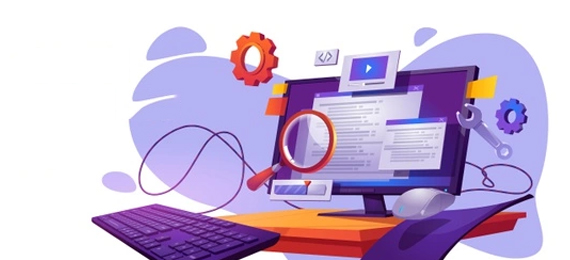
Despite technological advances, we are surrounded by computer myths that never go away. Some common misconceptions about computer hardware are often mistaken as the truth. In this blog, you will read 6 common myths about PC still in existence.
Myth #1 More RAM Will Speed up Your PC’s Performance
More RAM doesn’t hurt the performance, but it doesn’t always help. Adding more RAM will ONLY help if your PC starved for more RAM. Modern operating systems utilize spare RAM for caching but that is only helpful to an extent. For example, if you are buying a PC with 8 GB of RAM, you don’t need an additional 8GB RAM for extra cache space.
Before upgrading the RAM, you need to check the RAM usage of the PC. Upgrading from 8 GB to 16 GB will only be efficient if you play PC games or run heavy virtual machines that occupy more memory.
1. What Is the Measuring Unit for the Speed of RAM?
- A. Bytes
- B. Megahertz
- C. Gigabytes
- D. Terabytes
Myth #2 Compare CPU by Core Count and Clock Speed
Let’s assume CPU A has 4 cores and runs at 4 GHz. CPU B has 6 cores and runs at 3 GHz. Which one is better? You might hear everyone saying, “CPU B is better.” It is one of the biggest misconceptions about computer hardware. You need to consider many variations and parameters to compare CPU as it cannot be decided only by core count and clock speed.
Myth #3 You Should Always Have Faster CPU and Graphics Card
That’s not always a better idea. It’s one of the most obvious PC technology myths you should be aware of. Fast CPUs and graphic cards utilize more power. A laptop that runs on a Core i7 processor will significantly have less battery life than a laptop with an i3 or i5 processor. If you are building a PC for someone who doesn’t play demanding PC games, you might want to avoid faster CPU that will just run hotter and consume more power.
Myth #4 Mac PCs Are More Expensive Than Other PCs
Apple’s Macs are expensive compared to the low-end, affordable, inexpensive, Windows PCs, and Chromebooks. But once you start comparing Macs to higher-end windows Ultrabook, you’ll find comparable specifications at competitive pricing.
Myth #5 Core Speed Is an Important Performance Indicator
It is one of the famous misconceptions about computer hardware. It is important to understand that clock speed doesn’t completely decide the performance of the PC. Two CPUs with the same frequency and price category may have different performance. The core speed has an impact but once it reaches a certain point, other factors play a huge role.
Myth #6 Comparing GPU Core of Different Manufacturers Is the Best Way to Track Performance
CPUs and GPUs can be compared based on the cores they have. CPUs have a few powerful cores while GPU has hundreds or thousands of less powerful cores. Technically, there is no good way to compare the GPU core count of different GPU manufacturers. Each manufacturer works on different architecture which makes GPU core calculation meaningless.
For Example, Manufacture A may choose a few cores with more functionality while manufacturer B prefers more cores with reduced functionality. However, comparing CPU and GPU core of the same manufacturer/product family is valid.